10 conclusions from Opening Weekend
The biggest talking points from the Omloop Het Nieuwsblad and Kuurne-Brussel-Kuurne
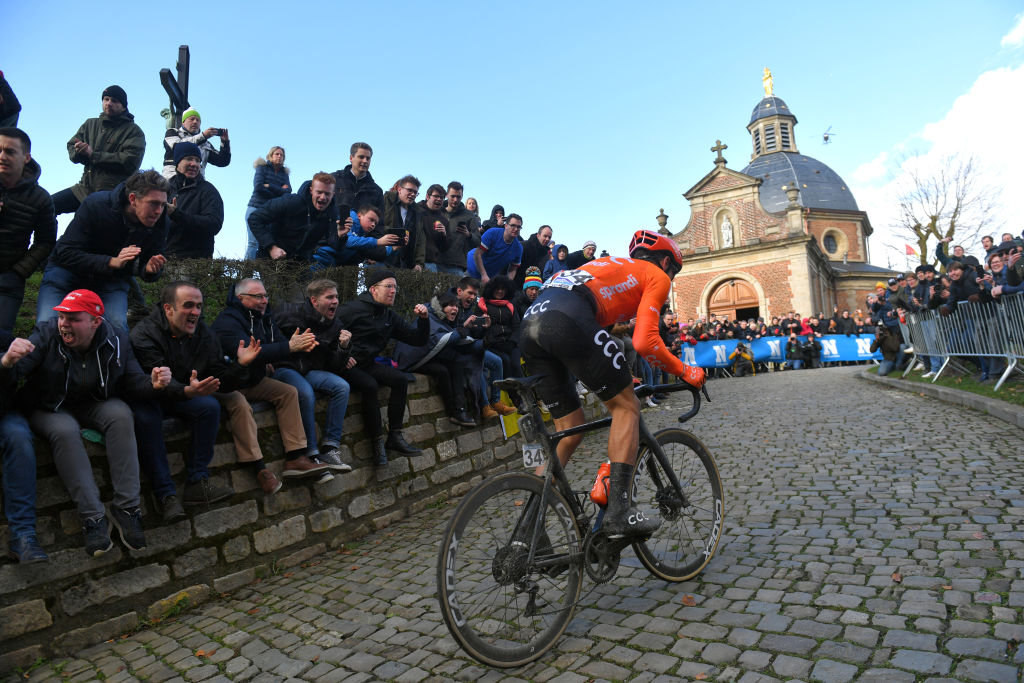
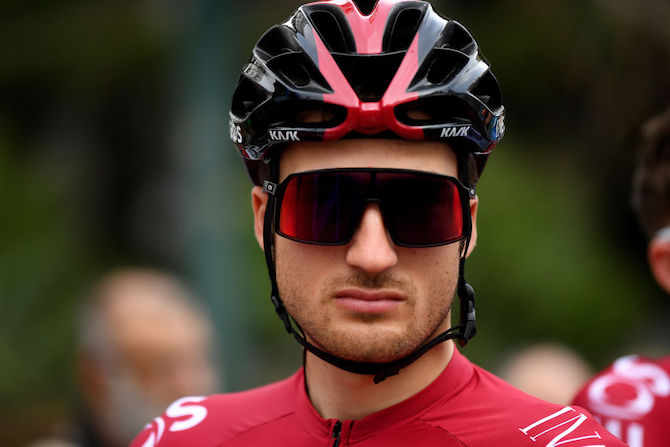
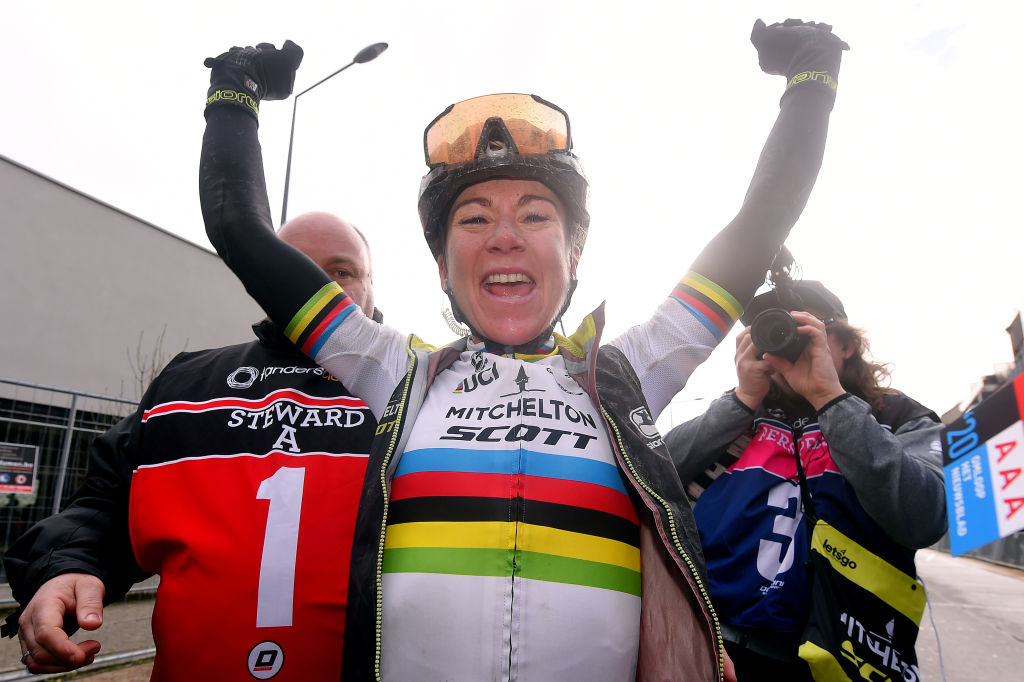
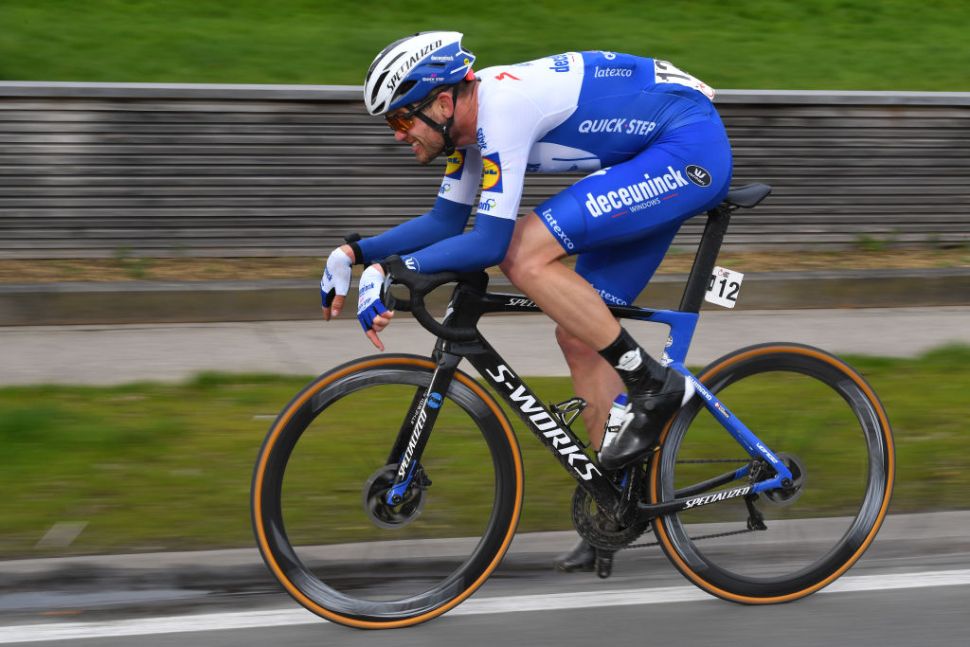
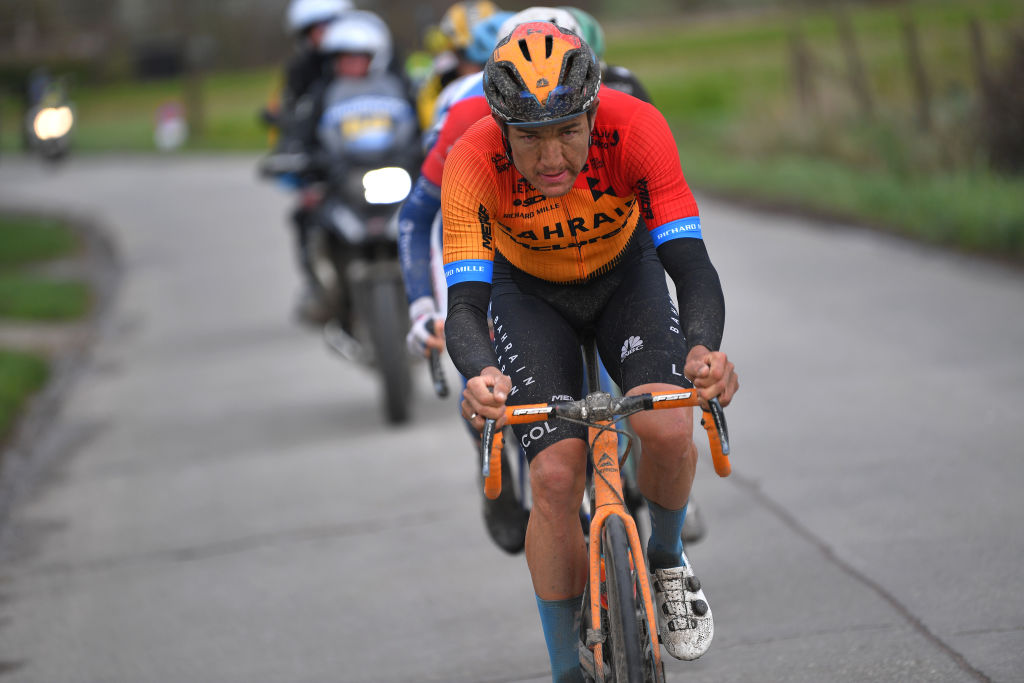
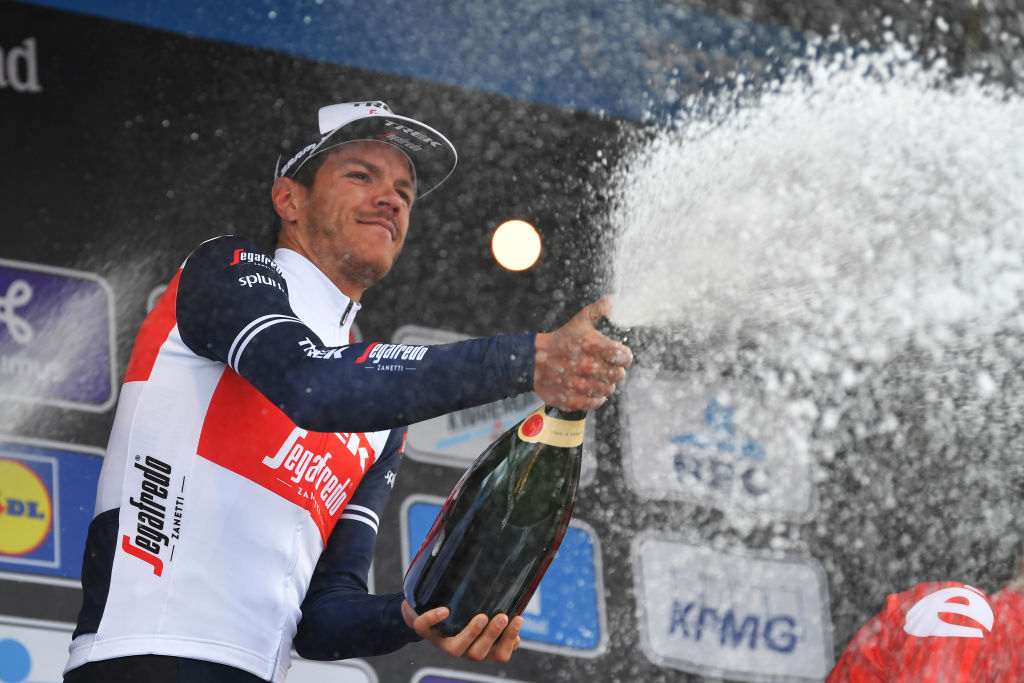
While Trek-Segafredo's Jasper Stuyven and Mitchelton-Scott's Annemiek van Vleuten took victories at the men's and women's editions of the Omloop Het Nieuwsblad on Saturday, and Kasper Asgreen (Deceuninck-QuickStep) and Lorena Wiebes (Parkhotel-Valkenburg) came out on top as, respectively, the winners at Kuurne-Brussel-Kuurne and the Omloop van het Hageland on Sunday, there were plenty more conclusions – good and bad – to be drawn from this season's Opening Weekend.
Here, Cyclingnews takes a closer look.
Deceuninck-QuickStep set the bar once more
It's difficult to imagine now, but it wasn't long ago that Deceuninck-QuickStep seemed to have more options than they knew what to do with. The image of three QuickSteppers circling Ian Stannard at the 2016 Omloop Het Nieuwsblad, about to be picked apart by the lone Sky rider, is one of the most memorable in recent Classics history.
For the past few years, however, the Belgian WorldTour team – no shorter in the options department – have consistently struck the right notes throughout the spring. Although they only won one of this weekend's races, they reinforced their status as the standard bearers for the coming spring campaign.
In the race they didn't win – Saturday's Omloop – they were still second, with Yves Lampaert pipped by Jasper Stuyven, who possesses a fierce sprint. Prior to that moment, they had once again demonstrated their strength in depth by placing two riders in the decisive eight-man move.
On Sunday, Kasper Asgreen was let loose, and while his victory was a display of stunning individual strength, it also owed something to the presence behind of arguably the most fancied sprinter in the race: Fabio Jakobsen.
Despite the loss of Philippe Gilbert, Patrick Lefevere's men have picked up where they left off last spring. Indeed, much in the same way that Lefevere has operated a conveyor belt of sprinters, the losses of Tom Boonen, Niki Terpstra, and Philippe Gilbert have hardly been felt as riders like Lampaert, Zdenek Stybar, Bob Jungels, and now Asgreen have risen to the occasion.
Get The Leadout Newsletter
The latest race content, interviews, features, reviews and expert buying guides, direct to your inbox!
The weekend's display had the Belgian press purring, with Wim Vos writing in Het Nieuwsblad: "Lefevere can rest assured; even without Gilbert, his team is ready – again – to rule over the Flemish spring."
Can a leopard change its spots?
When the television cameras showed a Team Ineos rider picking up a bike and throwing it in the face of another rider, most people wouldn't have needed to lean in to try to work out the man in question. Gianni Moscon has acquired quite the reputation in his short career so far, and it was firmly reinforced by his latest indiscretion on Sunday. As Jens Debuscherre, the recipient of the airborne bike – not even his or Moscon's – pointed out: "It's always the same guy."
That's three disqualifications now for Moscon after the 2018 Tour de France (punching someone) and the 2017 World Championships (holding onto a car). He has also racially abused a black rider – FDJ's Kevin Reza – and been accused of pushing someone off their bike for sticking up for said rider, although Moscon was later cleared in that case due to a lack of evidence.
"That's his personality and it will not change," a frustrated Debuscherre continued. Can a leopard change its spots? You'd like to think so. In this case, has enough effort gone into trying?
On Sunday, Ineos director Gabriel Rasch spoke of "supporting" Moscon to try to prevent such incidents happening again. The problem with that statement isn't so much the idea of supporting Moscon – this is someone who is still young and clearly in need of guidance – but the fact it comes after so many separate episodes.

Ineos' response to the racism was widely criticised as lip service, since they suspended him for a period of time in which he was hardly racing anyway. Then, at the Tour, they lurched the other way, leaving Moscon feeling as though he was hung out to dry.
In a way, it's a microcosm of the culture that landed the team before parliamentary, anti-doping, and medical inquiries – performance and image the overriding concerns, human values lost in between. Moscon is hardly a victim, but you wonder if he's a product of his environment. Can you change a leopard's spots? Not if you're not really interested in doing so.
Van Vleuten set for spring dominance
Despite heading deeper and deeper into her 30s, Mitchelton-Scott's Annemiek van Vleuten just keeps getting better and better. Making her season debut in the rainbow jersey she won with a 100-kilometre solo at last year's Worlds, the Dutchwoman cruised to Omloop victory alone from the Muur van Geraardsbergen.
Van Vleuten had made a point of starting the season strongly, noting how she'd rarely done so in her career. She'd trained extensively at altitude in Colombia and also joined the Mitchelton-Scott men's team on their training camp. By the end of January, she was second only to Egan Bernal (Team Ineos) in a list of most kilometres ridden that month.

In the past few years, we've seen she's ruthlessly motivated and focused when presented with an objective, and she's out for the spring Classics this year. The conditions on Saturday did help – Van Vleuten has the edge in punishing races that allow her strength to have the say, without being drawn into tactical games – but the performance was as resounding as it could have been. Boels Dolmans will have their say when Anna van der Breggen and their A-team return, but it could be a spring dominated by the world champion.
New course does little to alter Kuurne's complexion
Kuurne-Brussel-Kuurne did not end in a bunch sprint, but it wasn't really a direct reward for the organisers' attempts to steer the race away from the fast finishers. The new route for 2020 had been billed as a play for more selective, aggressive racing, but it wasn't actually all that different. Granted, the Oude Kwaremont was positioned later in the race, and one of the local laps was cut in favour of cobbles and narrower roads, but the overall number of climbs was two fewer than last year, and the final climb still came around 50km from the finish.
In the end, it wasn't a very eventful affair until the frantic final hour or so. Deceuninck-QuickStep's Kasper Asgreen escaped the clutches of the bunch in a dramatic finale that will have delighted the organisers, but the new route did little to alter the flavour of the race. In fact, Kuurne had already become less and less of a sprinter's race; in the past five years, there has only been one bunch sprint.
Asgreen now in top echelon of Classics riders
Kasper Asgreen has come so far in such a short space of time that the question is, where will it end? The Dane only turned pro part-way through 2018 because Deceuninck-QuickStep were hit by injuries, and he only had his first taste of the spring Classics less than 12 months ago. And yet he has catapulted himself almost to the top of the food chain in the strongest Classics team in the world.
Of the Dane's teammates, Yves Lampaert was impressive at the Omloop, and Zdenek Stybar and Bob Jungels are both still more established figures who should be going better in late March, but Asgreen is right up among them now. Deceuninck-QuickStep's approach is a numbers game, and while the quality of Asgreen's engine was apparent before Sunday, his bosses now know that he can be relied upon to share that leadership role.

Just as impressive as Asgreen's physical attributes – the big-gear churning combined with the searing injections of pace – is his mental fortitude. Although apparently quiet, he has very much asserted himself, carved out opportunities, and grasped them. He must now be considered one of the chief contenders for the main prizes this spring, including the Monuments.
Shaky start for Lotto Soudal's new era
Lotto Soudal have lagged some way behind their Belgian counterparts, Deceuninck-QuickStep, for several years now, but there was renewed hope at the turn of the year as they approached the spring with an overhauled Classics unit featuring Philippe Gilbert and John Degenkolb, winners of seven Monuments between them.
On Saturday, Gilbert was their best finisher – despite Tim Wellens' form and penchant for wet conditions – in eighth, but he was never really involved in the thrust of the action (although that was because they did get Frederik Frison up the road). On Sunday, Degenkolb – who'd been rested on Saturday, especially – could only place 18th as the bunch sprinted behind solo winner Kasper Asgreen. There is more than enough time to make amends but, for all the attention garnered by their new signings, it was a shaky start.
Haussler is still Haussler
The temperature was above five degrees this weekend, but the southerly gales made for a wind-chill factor that made you shiver in three layers and a winter coat. And still Bahrain McLaren's Heinrich Haussler refused to wear gloves. It was a classic Haussler display all around, as the Australian went gung-ho with a scatter-gun approach to his attacking on Saturday. He ended up 22nd, which seemed scant reward for the strength he displayed, and, speaking after the race, he was fully aware he hadn't used it in the best way.

"In hindsight, I didn't race very smartly," he admitted. Still, on a weekend where everyone was talking about in-form teammate Dylan Teuns, Haussler very much showed he can have a say this spring.
"I haven't had these legs since 2009," he said. What happened that year? The Australian was second at both Milan-San Remo and the Tour of Flanders.
Van Avermaet adapts to back seat in co-leadership role
CCC team's Greg Van Avermaet has spent the majority of his career without what you'd call a 'co-leader' but the arrival of Matteo Trentin from Mitchelton-Scott this winter has seen his approach change completely. This weekend was to be the first insight into how that partnership might function, and it consigned Van Avermaet to much more of a back-seat role. Although he did attack ahead of the Rekelberg on Saturday, it was the very next move that went all the way to the finish, and it contained Trentin.
"It's tactics. That's cycling," Van Avermaet said disappointedly in Ninove. On Sunday, Trentin was once again the chief aggressor, producing a notable acceleration that split the bunch over the Oude Kwaremont. The Italian, although dropped on the Muur in the Omloop finale, was active all weekend. Van Avermaet, meanwhile, found himself stuck in incohesive chase groups, with little to show for the flying form everyone was talking about.
That said, he was right to point out that, with Trentin up the road, if races do come back together, he's in a far stronger position to then take things on. Despite starting the Omloop "like amateurs" – Trentin's words – and despite still being winless in 2020, there were encouraging signs from the new dimension at CCC. It might require patience, but it could well bear fruit for Van Avermaet.
Coronavirus the hot topic
With a WorldTour peloton on lockdown in the UAE, the coronavirus outbreak was the hot topic during the weekend. The races went ahead without a hitch, but the Plan Bs in case of cancellation of the upcoming Italian races were starting to be given serious thought.
The top riders down for Tirreno-Adriatico – should it be cnacelled – would be sent to Paris-Nice, and those displaced sent on training camps of their own making. In the case of the Classics contenders, Nokere Koerse was being seen as an alternative to Milan-San Remo.
"This is Matteo [Trentin], our Italian – he does not have corona," Van Avermaet said on the Kuurne start podium, attempting to make light of the topic. Once off the podium, a blob of hand sanitiser was squirted into his hands by a press officer. In fact, handshakes were off limits for most riders all weekend as an already health-conscious peloton goes into overdrive. With the situation changing by the day, and new measures being announced in France, the coronavirus is going to leave its mark on the 2020 cycling season.
Stuyven has arrived
When a 23-year-old Jasper Stuyven soloed to victory at Kuurne-Brussel-Kuurne in 2016, it looked like we were looking at someone who could build quite the Classics palmarès over the next decade or so. In the following years, however, things didn't quite work out.
In 2017, he was still young; in 2018, he was a picture of consistency, without ever really threatening for victory, and in 2019 he endured a miserable spring campaign like the rest of his Trek-Segafredo teammates.
This year, he seems to have combined the two key elements: physical and mental. Now 27 and entering his prime, he learned the lesson from last year, when he lost too much weight before Opening Weekend and then tried to regain it too quickly. As for the mental side, he has worked with a sports psychologist for a couple of years now, but said that things have started to click in the past six months.
"Daring to lose is a totally different approach," he said at the Omloop, which he won in a two-man sprint ahead of Deceuninck-QuickStep's Yves Lampaert, admitting that he'd have previously been scared to make the moves he did. "I feel like I'm strong, and, mentally, I'm calm. There's no stress."
This Jasper Stuyven can certainly make up for lost time and start bulking out that palmarès this spring.
Patrick is a freelance sports writer and editor. He’s an NCTJ-accredited journalist with a bachelor’s degree in modern languages (French and Spanish). Patrick worked full-time at Cyclingnews for eight years between 2015 and 2023, latterly as Deputy Editor.
